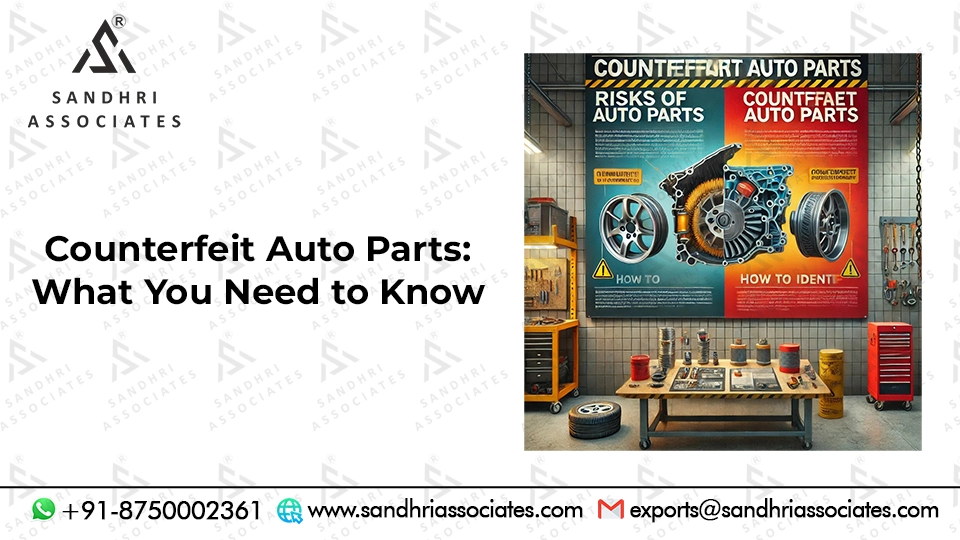Counterfeit Auto Parts: What You Need to Know
Counterfeit auto parts are unauthorized replicas of OEM or branded aftermarket parts that mimic the look of genuine components but are made with subpar materials and manufacturing standards. These parts are often sold at a lower price, appealing to budget-conscious buyers, but they come with significant risks, including compromised vehicle safety and performance.
Key Characteristics of Counterfeit Auto Parts
- Deceptive Packaging: Designed to look like genuine products, often with similar logos and branding.
- Inferior Quality: Made from low-cost materials that fail to meet industry standards.
- Unverified Source: Sold by unauthorized dealers or through unregulated channels.
Commonly Counterfeited Auto Parts
- Brakes: Poor-quality brake pads that wear quickly or fail entirely.
- Airbags: Fake airbags may not deploy, putting passengers at risk.
- Filters: Counterfeit oil and air filters can lead to engine damage.
- Lighting Systems: Substandard bulbs and fixtures may fail prematurely.
- Suspension Components: Weak materials in counterfeit shocks or struts can compromise handling.
The Risks of Counterfeit Auto Parts
- Safety Hazards: Fake parts can fail during critical moments, leading to accidents.
- Increased Costs: Substandard parts often need frequent replacement, negating any initial savings.
- Voided Warranties: Using counterfeit parts may void vehicle warranties.
- Environmental Harm: Non-compliance with regulations can lead to higher emissions or improper waste handling.
How to Avoid Buying Counterfeit Auto Parts
- Purchase from Trusted Dealers: Always buy from authorized retailers or repair shops.
- Verify Authenticity: Look for official holograms, QR codes, or serial numbers that can be checked with the manufacturer.
- Inspect Packaging: Genuine parts have high-quality packaging without typos or inconsistent branding.
- Research Sellers: Avoid deals that seem too good to be true or sellers with questionable reviews.
FAQs About Counterfeit Auto Parts
1. How can I identify counterfeit auto parts?
Look for inconsistencies in branding, low-quality packaging, or an unusually low price. Verify serial numbers with the manufacturer.
2. Are counterfeit auto parts illegal?
Yes, selling counterfeit auto parts is illegal in most countries. Using them may also lead to legal consequences in some jurisdictions.
3. Why are counterfeit auto parts so dangerous?
They are not made to industry standards and can fail unexpectedly, posing serious safety risks to drivers and passengers.
4. Where are counterfeit parts commonly sold?
They are often found online on unregulated platforms, at unauthorized retailers, or in markets where there is limited oversight.
5. What should I do if I suspect I’ve purchased counterfeit parts?
Stop using the part immediately and report the seller to the manufacturer or local authorities. Replace the part with a genuine one from an authorized dealer.

